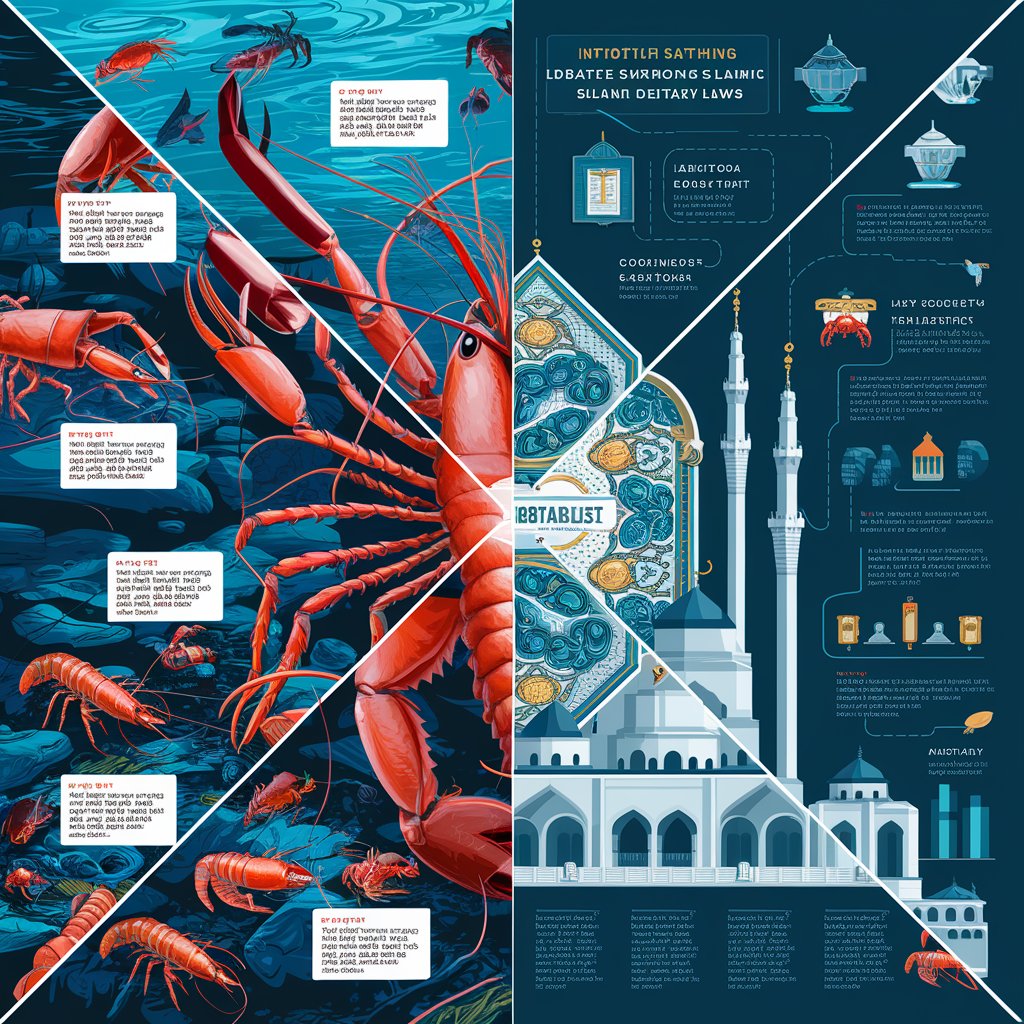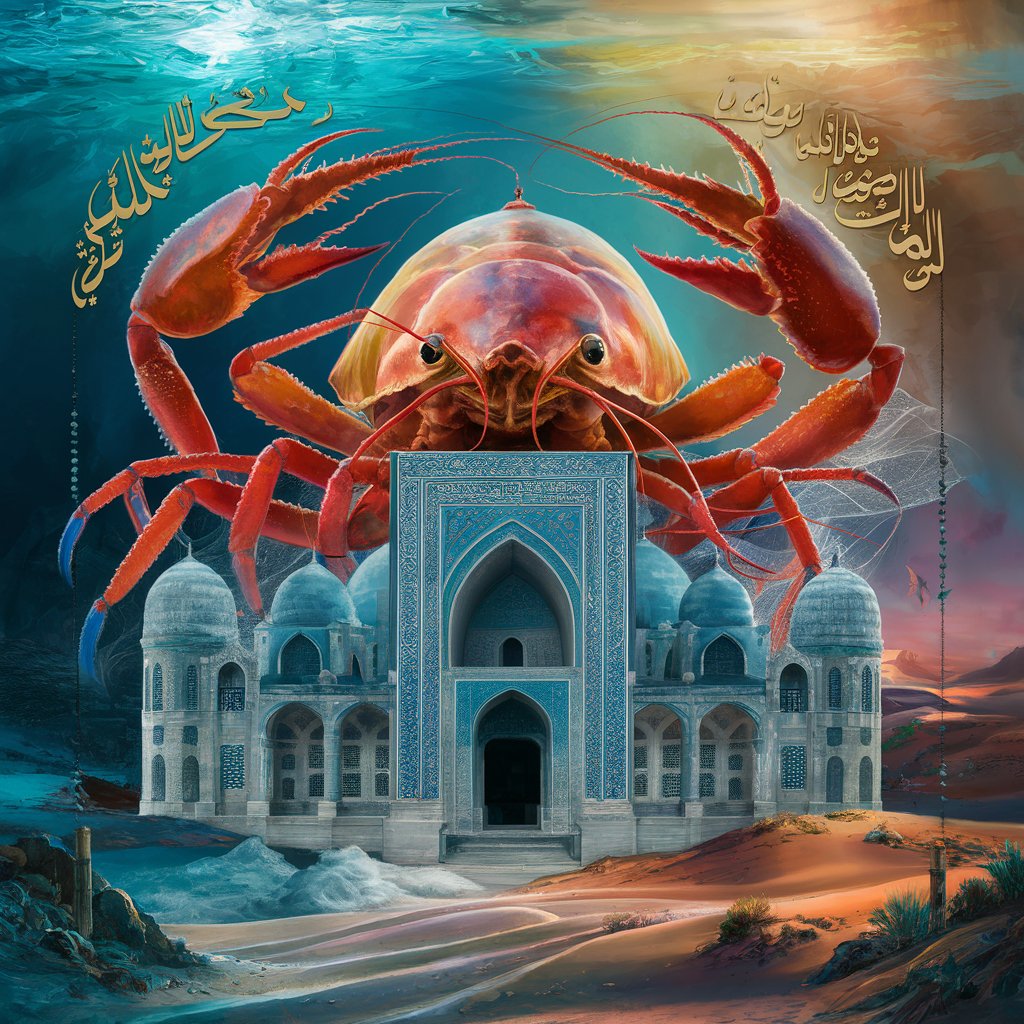Is Crawfish Halal?
As an expert in religious dietary laws and seafood consumption, I bring years of research and study to this topic. My analysis is based on authoritative Islamic sources, scientific literature on crustacean biology, and consultation with respected halal certification bodies. This article aims to provide a trustworthy, balanced, and in-depth examination of the halal status of crawfish.
Introduction
Crawfish, also known as crayfish, crawdads, or mudbugs, are freshwater crustaceans that have become a popular delicacy in many parts of the world. However, for Muslims who follow halal dietary guidelines, the question arises: Is crawfish halal? This comprehensive article will delve into the various aspects of this question, examining religious texts, scholarly opinions, and scientific considerations to provide a thorough understanding of the topic.
Understanding Halal
Before we dive into the specific case of crawfish, let’s establish a clear understanding of what “halal” means in Islamic dietary laws.
Key points about halal food:
- Halal means “permissible” in Arabic
- Applies to food, drinks, and other consumables
- Based on guidelines from the Quran and Hadith
- Ensures food is prepared in accordance with Islamic law
Criteria for Halal Seafood
When it comes to seafood, the general rule is that most aquatic animals are considered halal. However, there are some exceptions and differences of opinion among Islamic scholars. Here’s a breakdown of the main criteria:
| Criteria | Description |
|---|---|
| Scales | Many scholars consider all scaled fish to be halal |
| Fins | Some scholars require fish to have both scales and fins |
| Natural habitat | Some consider all sea creatures halal, regardless of form |
| Method of death | Animals must be alive when caught from the water |
Crawfish Biology and Characteristics
To determine whether crawfish meet the criteria for halal seafood, we need to examine their biological characteristics:
- Classification: Crawfish belong to the order Decapoda, which includes crabs, lobsters, and shrimp.
- Habitat: They primarily live in freshwater environments such as streams, rivers, and ponds.
- Physical features:
- Exoskeleton (shell)
- Ten legs (including claws)
- No scales
- No fins
Given these characteristics, crawfish do not fit neatly into the traditional categories of halal seafood like scaled fish. This ambiguity has led to differing opinions among Islamic scholars.
Islamic Scholarly Opinions on Crawfish
The halal status of crawfish is a matter of debate among Islamic scholars. Let’s examine the various viewpoints:
View 1: Crawfish are Halal
Proponents of this view argue:
- All sea creatures are permissible based on the Quranic verse: “Lawful to you is game from the sea and its food” (5:96)
- Crawfish are similar to other permissible crustaceans like shrimp
- The absence of scales is not a disqualifying factor for aquatic animals
View 2: Crawfish are Haram (Forbidden)
Scholars who consider crawfish haram base their opinion on:
- The hadith that prohibits eating animals that live on land and in water (amphibious creatures)
- The lack of scales and fins, which some consider necessary for halal seafood
- Crawfish’s scavenging behavior, which is seen as unclean
View 3: Crawfish are Makruh (Disliked but not Forbidden)
This middle-ground position holds that:
- While not explicitly forbidden, crawfish should be avoided out of caution
- Their status is unclear, so it’s better to abstain
Scientific Considerations
When evaluating the halal status of crawfish, it’s important to consider scientific factors that may influence religious rulings:
- Anatomy: Crawfish have a complex nervous system and can feel pain, which may affect considerations of humane treatment.
- Diet: Crawfish are omnivorous scavengers, eating both plant matter and small animals. This diverse diet may influence perceptions of their cleanliness.
- Environmental impact: Crawfish play important roles in their ecosystems. Sustainable harvesting practices align with Islamic principles of environmental stewardship.
- Nutritional value: Crawfish are rich in protein, vitamins, and minerals, which could be considered when weighing their benefits as a food source.
Halal Certification and Crawfish
For Muslims seeking clarity on the halal status of crawfish, halal certification bodies play a crucial role. However, there is no universal consensus among these organizations:
- Some halal certification agencies approve crawfish as halal
- Others exclude crawfish from their list of permissible seafood
- Many recommend caution and defer to individual interpretation
This lack of agreement reflects the ongoing scholarly debate and highlights the need for personal research and decision-making based on one’s understanding and adherence to Islamic principles.
Cultural and Regional Variations
The acceptance of crawfish as halal can vary significantly based on cultural and regional factors:
- In some predominantly Muslim countries with strong crawfish culinary traditions, they are widely consumed without controversy
- Other Muslim communities may avoid crawfish due to local customs or stricter interpretations of dietary laws
- Global trade and cultural exchange have led to increased awareness and debate about crawfish consumption among Muslims worldwide
Practical Considerations for Muslims
Given the diverse opinions on the halal status of crawfish, Muslims may consider the following approaches:
- Research and consultation: Study various scholarly opinions and consult with trusted religious advisors.
- Personal conviction: Make a decision based on one’s understanding of Islamic principles and comfort level.
- Erring on the side of caution: For those uncertain, choosing to abstain from crawfish is a valid option.
- Consideration of alternatives: If avoiding crawfish, explore other seafood options that are universally accepted as halal.
- Respect for diversity of opinion: Recognize that other Muslims may make different choices based on their understanding and interpretation.
The Broader Context of Halal Dietary Laws
To fully appreciate the crawfish debate, it’s essential to understand the broader context of halal dietary laws:
Purpose of Halal Guidelines
- Spiritual obedience: Following halal guidelines is an act of worship and submission to God’s commands.
- Health and cleanliness: Many halal rules promote hygiene and potentially healthier eating habits.
- Ethical treatment of animals: Halal slaughter methods aim to minimize animal suffering.
- Community cohesion: Shared dietary practices help strengthen Muslim community bonds.
Adapting Halal Principles to Modern Contexts
As new food sources and production methods emerge, Islamic scholars continually work to apply halal principles to contemporary situations:
- Novel foods: Addressing the halal status of newly discovered or created food items.
- Food additives: Determining the permissibility of modern preservatives and flavor enhancers.
- GMOs: Evaluating genetically modified organisms from an Islamic perspective.
- Lab-grown meat: Considering the halal status of cultured meat products.
The ongoing crawfish debate is part of this larger process of applying timeless principles to evolving circumstances.
Conclusion
The question “Is crawfish halal?” does not have a simple, universally accepted answer. The debate surrounding crawfish’s halal status highlights the complexity of applying religious dietary laws to specific foods, especially those that don’t clearly fit traditional categories.
Key takeaways:
- Crawfish’s halal status is debated due to its unique characteristics and habitat.
- Islamic scholars hold varying opinions, ranging from permissible to forbidden.
- Scientific considerations, cultural factors, and personal interpretation all play a role in the debate.
- Muslims must make informed decisions based on research, consultation, and personal conviction.
- The crawfish debate is part of the ongoing process of applying Islamic principles to contemporary food issues.
Ultimately, the decision to consume crawfish as halal food rests with individual Muslims, guided by their understanding of Islamic principles, scholarly opinions, and personal conscience. As with many aspects of religious practice, this issue calls for thoughtful consideration, respect for diverse viewpoints, and a commitment to seeking knowledge and understanding.
FAQs About Crawfish and Halal Status
To address common questions and concerns, here’s a list of frequently asked questions about crawfish and their halal status:
- Q: Are all seafood automatically considered halal?
A: While many scholars consider all sea creatures halal, there are differing opinions, especially for creatures that don’t clearly fit into traditional categories. - Q: Does the way crawfish are caught affect their halal status?
A: Yes, for those who consider crawfish potentially halal, they must be caught alive from the water and not die before being prepared for consumption. - Q: Can Muslims eat crawfish in restaurants?
A: This depends on individual interpretation. Those who consider crawfish halal may do so, while others may choose to avoid them or inquire about preparation methods. - Q: Are there any health concerns associated with eating crawfish?
A: While crawfish are generally safe to eat, they can cause allergic reactions in some people. As with any seafood, proper handling and cooking are essential to prevent foodborne illness. - Q: How do different Islamic schools of thought view crawfish?
A: Views vary among different madhahib (schools of Islamic jurisprudence). Some are more permissive, while others take a stricter stance. - Q: Is there a difference between wild-caught and farmed crawfish in terms of halal status?
A: The method of rearing generally doesn’t affect the halal status, but some may consider the feed given to farmed crawfish when making their decision. - Q: Can crawfish be certified halal?
A: Some halal certification bodies do certify crawfish products, while others do not. It’s important to check the specific standards of the certifying organization. - Q: How does the crawfish debate relate to other controversial seafood items?
A: Similar debates exist for other crustaceans and non-scaled aquatic animals. The crawfish debate is part of a larger discussion on applying halal principles to various sea creatures. - Q: Are there any alternatives to crawfish that are universally considered halal?
A: Many types of fish with scales are widely accepted as halal and can be suitable alternatives for those avoiding crawfish. - Q: How can I make an informed decision about eating crawfish?
A: Research scholarly opinions, consult with knowledgeable religious advisors, consider your personal understanding of Islamic principles, and make a decision that aligns with your conscience and religious convictions.
Glossary of Terms
To ensure a clear understanding of the concepts discussed in this article, here’s a glossary of relevant terms:
- Halal: Permissible or lawful in Islamic law.
- Haram: Forbidden or unlawful in Islamic law.
- Makruh: Disliked or discouraged, but not forbidden in Islamic law.
- Fatwa: A formal ruling or interpretation on a point of Islamic law.
- Madhab: A school of Islamic jurisprudence.
- Quran: The central religious text of Islam.
- Hadith: Reports of the words, actions, or habits of the Prophet Muhammad.
- Ijma: Consensus or agreement among Islamic scholars.
- Qiyas: Analogical reasoning used in Islamic jurisprudence.
- Ijtihad: Independent reasoning or interpretation of Islamic law.
- Tayyib: Pure, wholesome, and good quality (often used in conjunction with halal).
- Dhabihah: The prescribed method of ritual slaughter for halal meat.
- Najis: Ritually impure or unclean in Islamic law.
- Fiqh: Islamic jurisprudence, the human understanding and interpretation of Sharia.
- Zabiha: Another term for halal slaughter of animals.
Understanding these terms can help in navigating the complexities of Islamic dietary laws and the specific debate surrounding crawfish.
The Role of Intent in Halal Consumption

An important aspect of Islamic dietary laws that is relevant to the crawfish debate is the role of intention (niyyah) in determining the permissibility of actions:
- Acting on best knowledge: If a Muslim consumes crawfish believing it to be halal based on their research and understanding, their intention to follow Islamic law is considered.
- Unavoidable situations: In cases where no clearly halal options are available, consuming questionable foods out of necessity is generally permitted.
- Unintentional consumption: If someone eats crawfish without knowing its disputed status, they are not considered sinful.
- Seeking clarification: The act of researching and seeking knowledge about food permissibility is itself considered a virtuous action in Islam.
This emphasis on intention highlights the importance of education and conscientious decision-making in matters of halal consumption.
Conclusion: Navigating Complexity with Wisdom
The debate over the halal status of crawfish exemplifies the nuanced nature of applying religious principles to real-world situations. As we’ve explored in this comprehensive analysis, there are valid arguments and respected scholarly opinions on various sides of the issue.
Key points to remember:
- The diversity of opinions reflects the rich tradition of Islamic scholarship and interpretation.
- Personal research, consultation with knowledgeable authorities, and sincere reflection are crucial in making informed decisions.
- Respect for differing viewpoints within the Muslim community is essential, as is recognition of the complexity of the issue.
- The crawfish debate is part of a broader ongoing process of applying Islamic principles to contemporary food and environmental issues.
Ultimately, Muslims are encouraged to approach this and similar dietary questions with a combination of knowledge, wisdom, and personal conviction. By engaging thoughtfully with religious texts, scholarly interpretations, and modern scientific understanding, individuals can make choices that align with their faith while navigating the complexities of the modern food landscape.
Whether one chooses to consume crawfish or not, the process of grappling with this question can deepen one’s understanding of Islamic principles and strengthen one’s commitment to living an ethical and mindful life. In this way, the crawfish debate serves not just as a point of dietary decision-making, but as an opportunity for spiritual growth and community dialogue.








